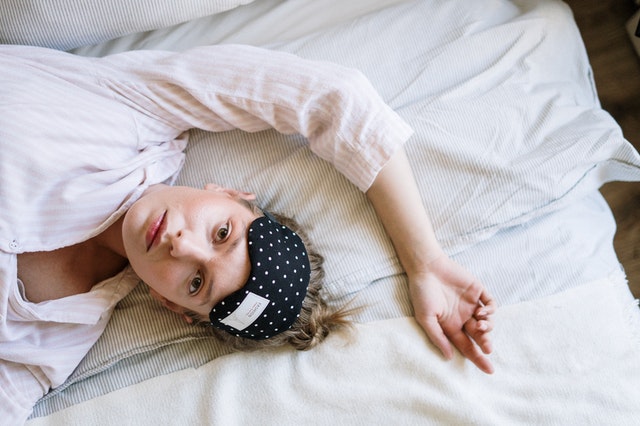31% of man thinks that their problems falling asleep are not necessary, according to the study “How Spaniards Sleep,”). Nevertheless, not getting enough sleep can have negative consequences for our health in the short and long term. Having trouble sleeping is the most common sleep disorder in the general population. If this is your case, follow our ten tips to avoid insomnia.
What is sleep, and what is insomnia?

Sleep is a complex physiological phenomenon fundamental to our health. Sleep is a basic need of our body that allows us to rest and recover physically and mentally. Insomnia is defined as an abnormal lack of sleep and difficulty falling asleep. Insomnia can manifest itself in two ways:
. Onset insomnia, which is when we have trouble falling asleep in less than 30 minutes;
. Maintenance insomnia occurs when we have problems staying asleep, causing waking up at night that lasts more than 30 minutes or waking up early, preventing sleeping the necessary hours.
Also, depending on the insomnia episode’s duration, we can speak of transitory insomnia, when it lasts days or weeks, and chronic insomnia, when the problem lasts for months or years. The causes can be medical.
On average, people need to sleep between seven and eight and a half hours every day, although some get less (4 hours a day) or who need up to 10 hours. Sleeping fewer hours than necessary can negatively affect our lives, causing feelings of tiredness, fatigue, or lack of energy and increasing the chances of suffering from anxiety, depression, and stress. Ultimately, insomnia causes a decrease in our quality of life, but we can follow specific recommendations to sleep better.
Tips to avoid insomnia
If you have insomnia, there are some tips you can follow to combat it:
Establish a bedtime: Routine Routines are good for getting to sleep. For this reason, it is recommended that you establish schedules to go to bed and wake up that is appropriate to your rhythm of life and that you can also maintain the weekend. Do some activity that relaxes you just before going to bed, such as taking a hot shower or bath or reading a novel (better in another room, not in bed).
Use the bed only to sleep: The bedroom should rest, so it is not a good idea to watch television, listen to the radio, work or eat in bed. Smartphones, tablets, or laptops, it is better to turn them off a couple of hours before going to bed because the lights of these devices (blue light) delay the secretion of melatonin, the so-called sleep hormone.
Create a suitable atmosphere: Having dim lights in the bedroom and blinds or curtains that prevent light from passing through are essential to creating an environment conducive to rest. People follow circadian rhythms, which are affected by light; therefore, being exposed to bright light when you are supposed to be getting ready for sleep is not the most appropriate; because your body will think that it is still daylight and will remain active.
It also helps to fall asleep with a comfortable mattress and pillow, a quiet environment, and the room is at the right temperature (neither cold nor hot, is the ideal temperature for sleeping between 15 and 18 degrees).
Naps, better short: To be able to sleep well at night, if you are one of those who take a nap, make it short, no more than 20 or 30 minutes, and that from the moment you get up from the rest until the moment you go to bed at night at least seven hours.
Exercise: Playing sports regularly improves the quality and quantity of sleep, but try to exercise several hours before going to bed so that the body has time to relax physically.
Avoid Tobacco, alcohol, and exciting drinks Tobacco is a stimulating agent, just like drinks such as caffeine or theine, so you should reduce the amount you consume and avoid them, especially in the last hours of the day. As for alcohol, its excessive consumption produces initial drowsiness, but then it will affect your sleep cycles, so it is also advisable to moderate or avoid its intake.
Take care of your diet: Avoid large dinners that cause heavy digestion, and try to eat dinner at least two or three hours before going to bed to digest correctly. Certain foods can promote a good night’s rest, such as almonds, nuts, or cereals such as oats or rice rich in melatonin, or milk and dairy products, which are high in tryptophan. Tryptophans are essential amino acids that allow our body to obtain serotonin, which functions to regulate sleep, like melatonin.
Drink relaxing infusions: To avoid insomnia, you can take some natural relaxing infusion, such as linden, lemon balm, chamomile, or valerian, but do not go overboard with the amount of liquid you drink, so you don’t have to get up at night to the bathroom thus break your sleep cycle.
Practice relaxation techniques: Practicing some relaxation techniques, such as meditation, mindfulness, or breathing techniques, just before going to bed will help you relax your body and, therefore, to better sleep. You can accompany these exercises with relaxing music at a low volume.
Get up if you can’t sleep: If you can’t do it after trying to rest for 15 minutes or more, it’s better to get up instead of tossing and turning. You can read a book or do some monotonous activity that does not require concentration or is interesting to you. When you feel sleepy again, go back to bed.
These tips to avoid insomnia are generic, but the way to combat insomnia will differ depending on whether it is chronic or not. Sleep medications should not be taken without a prescription. If you have insomnia and see the episodes recur a lot, seek help from a medical professional


